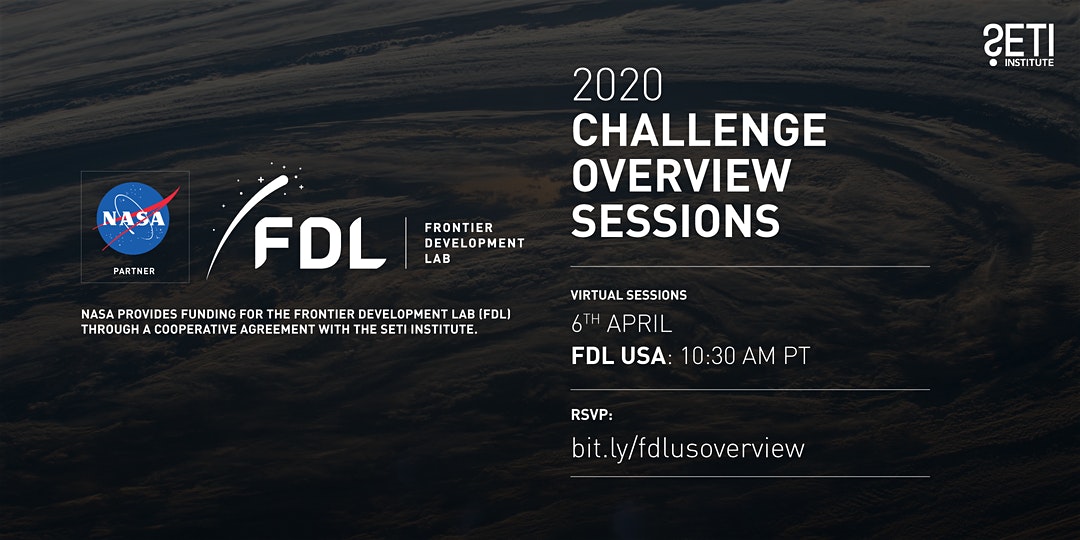FDL Challenge Briefing

Tags: Frontier Development Lab, AI and Machine Learning, Education, Outreach
Time: Monday, Apr 06, 2020 -
Location: Online
FDL Challenge Overview Sessions
10:30 am PT
What will you learn in this session?
Our artificial intelligence (AI), machine learning (ML), data, and space scientists will be available to shed more light on our FDL USA 2020 Challenges themes. A key aspect of FDL success is the careful formation of small interdisciplinary teams focused on tackling specific challenges. Each team is composed of at least two space researchers and two data science or AI researchers, selected by our expert network of faculty. During the research and development sprints, the teams are supported by team leads and experts from NASA and our other partners. This session aims to answer your questions: Why are these challenges pressing? What impact do AI/ML solutions to these challenges have on space science and human kind? How can you contribute?
Agenda:
10:30am - Introduction
Challenges -
Heliophysics:
10:40am - 10:45am - Tracking the geoeffectiveness of solar storms
10:47am - 10:52am - Earlier detection of solar wind characteristics
Planetary Science (Lunar)
10:54am - 10:59am - Moon Engine: Moon For Good, Phase II
Earth Science/Disaster
11:01am - 11:06am - Lightning & Extreme Weather
11:08am - 11:13am - Knowledge Discovery Framework: Discovery of Unusual Patterns in NASA’s Earth Science Data Archive
11:15am-11:20am - The Earth Intelligence Engine: Drought images from the Future
11:22am -11:27am - Where droughts are born: Mapping America’s waters in near real-time
Astrophysics
11:29am - 11:34am - Star Check: seeking out unusual stars and planetary systems
11:36am - 11:41am -Starspots: Stellar surface features from exoplanetary transits
Astronaut Health
11:43am - 11:47am - Long duration missions and cancer: a testbed for building causal inference method
11:47am - 11:55am - General Q&A
11:55am-12:00pm - Closing Remarks
About FDL
The Frontier Development Lab (FDL) applies AI technologies to science to push the frontiers of research and develop new tools to help solve some of the biggest challenges that humanity faces. These range from the effects of climate change to predicting space weather, from improving disaster response, to identifying meteorites that could hold the key to the history of our universe.
FDL is a public-private partnership with NASA in the USA and ESA in Europe. We work with partners such as NVIDIA, Intel, Google Cloud, Mayo Clinic, IBM, Lockheed Martin, Luxembourg Space Agency, XPrize, Kx, and USGS who provide expertise and the computing resources necessary for rapid experimentation and iteration in data intensive areas.
FDL is hosted by the SETI Institute in Mountain View, California - in partnership with NASA Ames Research Center.
We have established an impressive success rate for research output over accelerated time periods over time since we launched the Frontier Development Lab. Research papers are regularly accepted to respected journals, presented at scientific conferences (in both AI and science domains) and have been featured in multiple media outlets.
